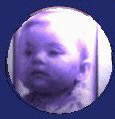|

BaftaBaby 
"Always entranced by cinema."
|
 Posted - 12/26/2007 : 15:45:07 Posted - 12/26/2007 : 15:45:07


|
Lust, Caution
That Ang Lee has developed into an assured filmmaker wholly in charge of his productions is undeniable. That this film isn't his best is probably also unlikely to be challenged. But before identifying what's wrong, Lust, Caution deals with aspects of the human ego in a far deeper way than any of Ang's previous works.
It may be that the film's very ambition contains the seeds of its flaws. The film covers four years and there are times when you think the film's going to go on that long as well.
The time and place -- 1938-1942 in Japanese occupied China -- set a scene we're more used to against a Nazi backdrop. Think Vichy France. Comparisons have already been made between this tale of sleeping with the enemy and Verhoeven's Black Book.
The parallels are apt, and Ang has gifted us with a remarkable performance from Tang Wei, using her student passion against oppression to fuel a protracted plan of deception to get close enough to an enemy sympathizer to destroy him.
Production values and performances are the best things about the film. Both Wong and usual Chinese good-guy Tony Leung Chiu-Wai exhibit a range of subtlety and raw emotion that lend credence to a story which all too often melts under scrutiny.
Wong's job is more difficult since her character of a naive, even shy schoolgirl who finds strength and solace in acting, is recruited to the leading part in a political student cause that requires her to be sophisticated, sexually assured and seductive, and fearless. The scenes where the student cell prepare her as a virgin to be irresistible in bed are heartbreaking.
She learns sexual technique as she might a course in trigonometry, except that for sex to be convincing it inevitably results in a physical fulfilment that wars with the shame and the pragmatism.
The target of this honey-trap is Mr Yee, a political functionary whose remit includes identifying and torturing members of the resistence against the occupying force. We will learn that it was he who eliminated the wife and family of the leader of the students' resistence cell.
While it's understandable that such a man might engender the passion for his murder among student activists dedicated to the cause of restoring China, there are plot contrivances that really test the suspension of disbelief. When Wong, who's taken on the persona of Mrs Mak, befriending Mrs Yee to get close to her husband, is convinced she's definitely captured his interest even in the face of a phalanx of protection, political circumstances suddenly force the Yees out of Hong Kong and back to Shanghai.
The student cell breaks and Wong returns to her studies. After some years she, too, re-emerges in Shanghai where she inadvertantly meets up with the cell again, and soon they're resurrecting the same plot of entrapment and destruction. But nothing seems to have changed, particularly with Mr Yee. If he's such a funtionary that any notion of career advancement is out of the question, then how can he be such a prime focus for the former students. If he's more than that, why aren't we party to his rise in the ranks.
Surely if more were at stake than just the continuation of what increasingly feels like the personal revenge of the cell's leader, more would be at stake for Wong as she resumes the persona of Mrs Mak.
It's in this new location, where their options for meeting are greater, that she's able to consummate the relationship. It's as though the entire first part of the film is some protracted foreplay, almost a redefinition of coitus interruptus. But, as the real story unfolds of the profound effects the physical relationship has on Wong, we're left wondering whether we really needed so much set-up.
The true poignency of the film involves the courageous sacrifices Wong makes which lead to the most pathetic confusion of self and persona, the almost inevitable way she imbues the intensity of her physical relationship with Yee with the emotional ardor she longs to experience as herself.
For tackling such questions of the human psyche both Ang Lee and Tang Wei deserve much praise. I'll leave it to you to discover whether it needed over 2� hours.
|
|

